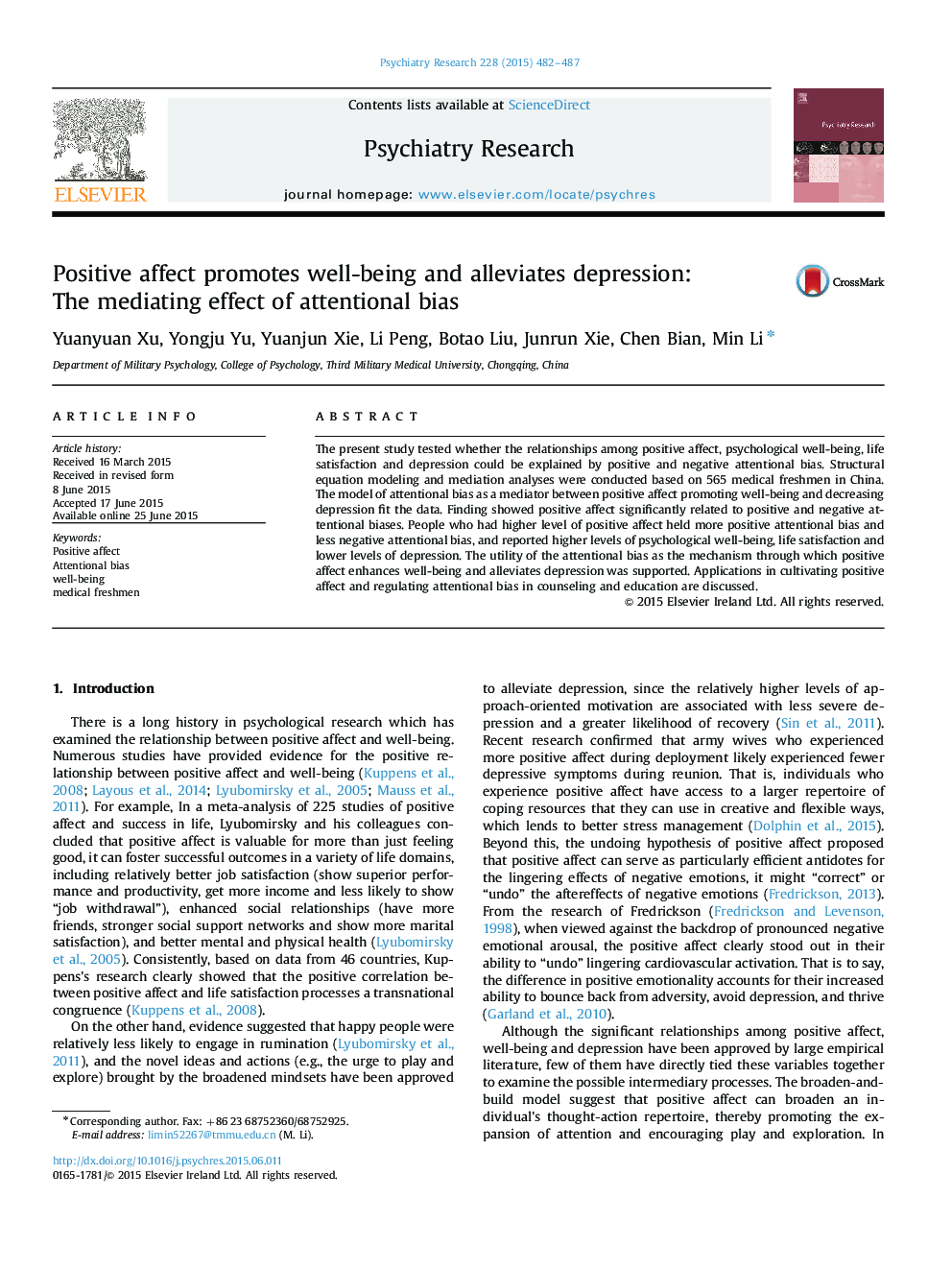| Article ID | Journal | Published Year | Pages | File Type |
|---|---|---|---|---|
| 10303698 | Psychiatry Research | 2015 | 6 Pages |
Abstract
The present study tested whether the relationships among positive affect, psychological well-being, life satisfaction and depression could be explained by positive and negative attentional bias. Structural equation modeling and mediation analyses were conducted based on 565 medical freshmen in China. The model of attentional bias as a mediator between positive affect promoting well-being and decreasing depression fit the data. Finding showed positive affect significantly related to positive and negative attentional biases. People who had higher level of positive affect held more positive attentional bias and less negative attentional bias, and reported higher levels of psychological well-being, life satisfaction and lower levels of depression. The utility of the attentional bias as the mechanism through which positive affect enhances well-being and alleviates depression was supported. Applications in cultivating positive affect and regulating attentional bias in counseling and education are discussed.
Related Topics
Life Sciences
Neuroscience
Biological Psychiatry
Authors
Yuanyuan Xu, Yongju Yu, Yuanjun Xie, Li Peng, Botao Liu, Junrun Xie, Chen Bian, Min Li,
